Our Peer-Review Process
Our Board of Directors is made up of leading academics from top universities and entrepreneurs who care deeply about evidence-based science and hands-on learning. All are strongly committed to the IFR’s peer-review process, working to ensure the highest level of academic and pedagogic excellence in field schools. The board travels far and wide to meet annually and review each field school, both new and returning, to ensure quality of our programs.
Board of Governors

Lynn Swartz Dodd, University of Southern CaliforniaBoard of Governors, Co-Chair; Academic Board
Lynn Dodd is a Professor of the Practice of Religion at the University of Southern California (USC). She is Director of USC’s Archaeology Research Center and Archaeology XR Lab. She co-directed the Kenan Tepe Excavations in the Upper Tigris River Valley of Turkey. She directs the Tell al-Judaidah Publication Project and co-organized the Israeli-Palestinian Archaeology Working Group. Her current fieldwork involves virtual, immersive, and digital heritage experiences and documentation, whether on land or underwater, predominantly in locations still sacred to Native Americans such as Catalina (Pimu) Island and Tahoe.
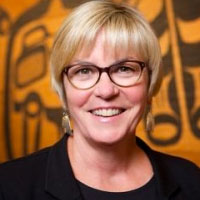
Julie Stein, Burke Museum of Natural History and Culture, University of WashingtonBoard of Governors, Co-Chair; Academic Board
Julie Stein is an Emeritus Professor at the Department of Anthropology and Emeritus Executive Director of the Burke Museum of Natural History and Culture at the University of Washington. Prof. Stein’s primary research interest is geoarchaeology, especially studies involving sediments found within archaeological sites and archaeological stratigraphy. Her work also emphasizes museum collections and coastal adaptations of peoples, specializing in the Northwest Coast.

Willeke Wendrich, University of California Los AngelesBoard of Governors, Academic Board
Willeke Wendrich is the Joan Silsbee Chair of African Cultural Archaeology, a Professor of Egyptian Archaeology at the Department of Near Eastern Languages and Cultures and the former Director of the Cotsen Institute of Archaeology at UCLA. She is also the Director of the Center for Digital Humanities, Editorial Director of the Cotsen Institute Press and Editor-in-chief of the UCLA Encyclopedia of Egyptology. Professor Wendrich is the co-director of the Fayum Project, Digital Karnak, Keck Program in Digital Cultural Mapping and Ancient Egypt Architecture Online.

Yuval Bar-Zemer, Linear City Development LLCBoard of Governors
Yuval Bar-Zemer is Co-Founder and Managing Partner at Linear City Development LLC. He is a visionary, early developer of industrial properties in downtown Los Angeles. He is a member of several for-profit and non-profit boards.
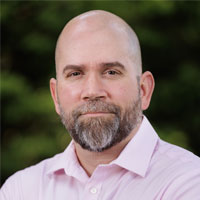
Anthony P. Graesch, Connecticut CollegeBoard of Governors & Chair of Academic Board
Anthony P. Graesch is Associate Professor of Anthropology at Connecticut College. His active research programs address materiality and discard behavior in contemporary societies as well as in and among ancestral houses and households of Stó:lō-Coast Salish collaborators in northwestern North America. At Connecticut College, Professor Graesch subscribes to the idea that undergraduates should achieve demonstrable research literacy at the time of graduation, and he regularly mentors students pursuing field- and lab-based experiential research education.

Fred Limp, University of Arkansas at FayettevilleSecretary, Board of Governors & Academic Board
William (Fred) Limp is the Emeritus Leica Geosystems Chair and University Professor at the University of Arkansas, Fayetteville. He is a past-President of the Society of American Archaeology (2009-12), the Founding Director Emeritus of the Center for Advanced Spatial Technology, and an expert in geomatics and North American archaeology.
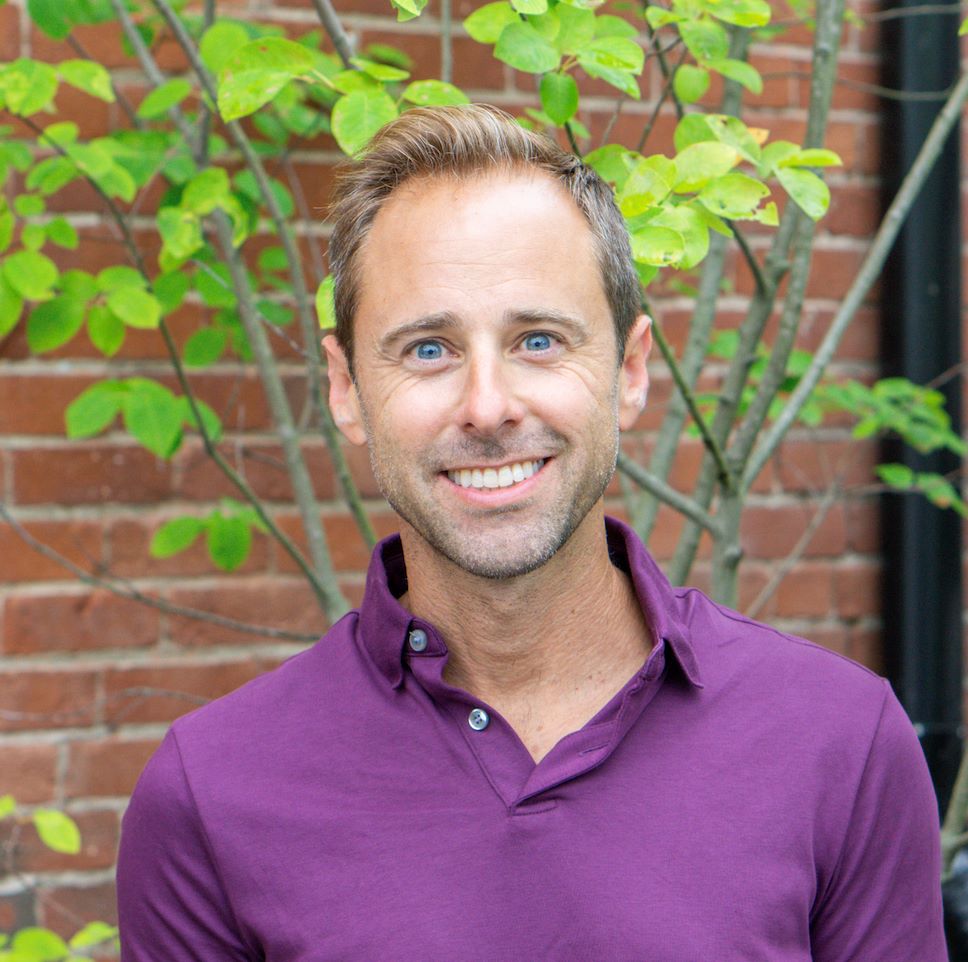
Scott Tayloe, CIS AbroadBoard of Governors
Scott Tayloe is is the Chief Operating Officer of CIS Abroad, an education abroad provider offering international opportunities and consulting services for U.S. students, institutions and international educator professionals. Scott received an undergraduate degree in Aeronautical Science and a MBA from Jacksonville University in Florida, is the co-author of a book on Short-Term Programming Abroad for U.S. students, and a former trainer corps member for NAFSA in Washington, D.C. As a former chair of NAFSA’s Rainbow Special Interest Group, Scott has a passion for finding paths for underrepresented students to travel abroad and believes that all students regardless of their field should have an international experience during their college career.

Jason De León, University of California Los AngelesBoard of Governors
Jason De León is the Director of the Cotsen Institute of Archaeology and Professor of Anthropology and Chicana, Chicano, and Central American Studies at the University of California Los Angeles. He directs the Undocumented Migration Project (UMP),a long-term ethnographic and archaeological study focused on clandestine migration between Mexico and the United States. He is an expert in ethnoarchaeology, migration, and the U.S./Mexico border. Dr. De León’s latest project is Hostile Terrain 94 an art exhibition composed of ~4000 handwritten toe tags that represent migrants who have died trying to cross the Sonoran Desert of Arizona between the mid-1990s and 2023. The ongoing pop-up installation has been installed in more than 110 locations nationally and globally since 2020. His newest book “Soldiers and Kings: Survival and Hope in the World of Human Smuggling” is a long-term ethnographic study of the daily lives of smugglers that will be published by Viking Books in March of 2024.
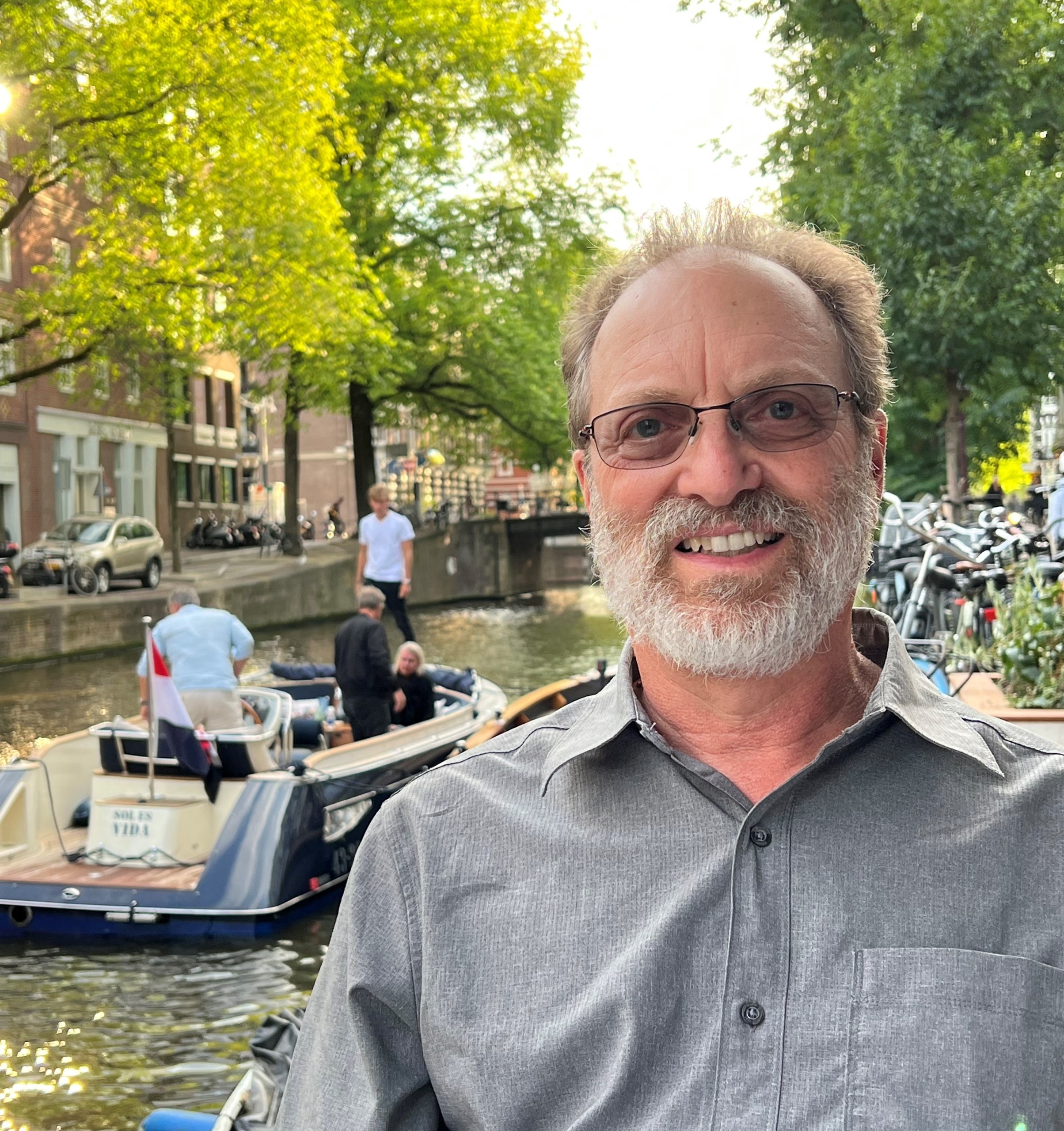
Jeff Altschul, Coalition for Archaeological SynthesisBoard of Governors
Jeff Altschul first became interested in archaeology in the late 1960s and early 1970s while participating in Field Museum on Natural History (Chicago) fieldschools on the south side of Chicago and in the Hay Hollow Valley of Arizona. After receiving a Ph.D. in Anthropology from Brandeis University in 1982, he co-founded two cultural resource management (CRM) consulting firms—Statistical Research, Inc. (1983, U.S.A.) and Nexus Heritage (2008, U.K.)—and two nonprofits organizations—the SRI Foundation (2001) to advance historic preservation through education, training, and research and the Coalition for Archaeological Synthesis (2017) to foster synthesis in archaeology to expand knowledge and benefit society. Since 1975, Jeff has been involved in more than 1,500 CRM projects in North America, Latin America, Europe, Africa, and Asia. For the last two decades, Jeff has been assisting developing countries establish frameworks to help balance historic preservation with economic development. He is a co-author and founding signatory of the Pocantico Call to Action on Climate Impacts and Cultural Heritage, the Campinas Declaration on the Need to Protect and Safeguard Cultural Heritage in the Americas and the Caribbean, The Toronto Declaration On the Relevance and Application of Heritage in Contemporary Society, and the Kiel SACC Summit on Social Archaeology and Climate Change. Jeff has published widely, including articles in the Proceedings of the National Academy of Sciences, American Antiquity, Advances in Archaeological Practice, Ex Novo, Conservation and Management of Archaeological Sites, Public Archaeology, Heritage Management, and Ancient Mesoamerica. He has served on many boards of professional societies, including being elected treasurer and president of the Society for American Archaeology, and president of the Register of Professional Archaeologists.
Academic Board

Anthony P. Graesch, Connecticut CollegeChair, Academic Board & Board of Governors
Anthony P. Graesch is Associate Professor of Anthropology at Connecticut College. His active research programs address materiality and discard behavior in contemporary societies as well as in and among ancestral houses and households of Stó:lō-Coast Salish collaborators in northwestern North America. At Connecticut College, Professor Graesch subscribes to the idea that undergraduates should achieve demonstrable research literacy at the time of graduation, and he regularly mentors students pursuing field- and lab-based experiential research education.

Jessica I. Cerezo-Román, University of OklahomaAcademic Board
Jessica I. Cerezo-Román is an Associate Professor at the Department of Anthropology, University of Oklahoma. Dr. Cerezo-Román specializes in the study of highly fragmented and cremated human remains, mortuary practices, bioarchaeology, and forensic anthropology. She uses cutting-edge methodological and theoretical archaeological approaches to study the human body and mortuary customs from ancient populations of the Greater American Southwest, Mexico, Northern Europe, and North Africa. Her theoretical approaches focus on emerging complex societies, identity intersections, personhood, embodiment, memory and funerary rituals. Dr. Cerezo-Román is an Associate Member of the Forensic Anthropology section of the American Academy of Forensic Sciences.

Lynn Swartz Dodd, University of Southern CaliforniaAcademic Board; Board of Governors, Co-Chair
Lynn Dodd is a Professor of the Practice of Religion at the University of Southern California (USC). She is Director of USC’s Archaeology Research Center and Archaeology XR Lab. She co-directed the Kenan Tepe Excavations in the Upper Tigris River Valley of Turkey. She directs the Tell al-Judaidah Publication Project and co-organized the Israeli-Palestinian Archaeology Working Group. Her current fieldwork involves virtual, immersive, and digital heritage experiences and documentation, whether on land or underwater, predominantly in locations still sacred to Native Americans such as Catalina (Pimu) Island and Tahoe.

Rowan Flad, Harvard UniversityAcademic Board
Rowan Flad is a Professor in the Department of Anthropology at Harvard University. His current research focuses on the emergence and development of complex society during the late Neolithic period and the Bronze Age in China. This research incorporates interests in diachronic change in production processes, the intersection between ritual activity and production, the role of animals in early Chinese society – particularly their use in sacrifice and divination, and the processes involved in social change in general. His current field research involves survey, geophysics, and excavation at sites along the Tao River in Central Gansu Province, China, focused on technological changes during the third and second millennia BCE.

Keolu Fox, University of California, San DiegoAcademic Board
Dr. Keolu Fox, is the first Kānaka Maoli to receive a doctorate in genome sciences. Keolu is a co-founder of the Native BioData Consortium (NBDC) and an Assistant Professor at the University of California, San Diego (UCSD), where he is a co-founder and co-director of the UCSD Indigenous Futures Institute. Keolu is also affiliated with the Halıcıoğlu Data Science Institute, the Department of Anthropology, the Global Health Program, the Climate Action Lab, and the Design Lab. Keolu’s work focuses on the connection between raw data as a resource and the emerging value of genomic health data from Indigenous communities. He has experience designing and engineering genome sequencing and editing technologies, and a decade of grassroots experience working with Indigenous partners to advance precision medicine.
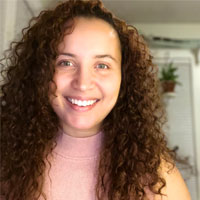
Tiffany Fryer, University of MichiganAcademic Board
Tiffany Fryer is Assistant Professor of Anthropology, University of Michigan, and Assistant Curator of Historical and Contemporary Archaeology, University of Michigan Museum of Anthropological Archaeology. She is a core member of the Tihosuco Heritage Preservation and Community Development Project—a community-centered heritage initiative based in Quintana Roo, Mexico. She teaches and writes on colonialism and political violence; research methods, praxis, and politics of historical archaeology and anthropology; and, museums, monuments, and cultural heritage. She is also an active member of the Society of Black Archaeologists and a consulting scholar of the Penn Museum.
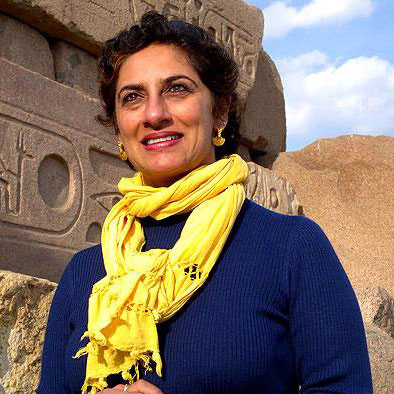
Salima Ikram, American University in CairoAcademic Board
Salima Ikram is a Professor, Archaeologist and Author. She is also the leading expert on animal mummies. As a founder of the Animal Mummy project at the Egyptian Museum in Cairo, she has emerged as one of the leading scholars in Egyptian funerary archaeology. Combining an interest in and understanding of the past with a passion of preserving it for the future, she has brought the little known world of animal mummies to light.
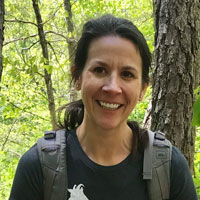
Carla Klehm, University of Arkansas at FayettevilleAcademic Board
Carla Klehm is a Research Assistant Professor in the Center for Advanced Spatial Technologies at the University of Arkansas, Fayetteville. Her research focuses on inequality in the past, and how inequality intersects with trade, globalization, and human-environment dynamics. This interest has lead Dr. Klehm across the world, from the earliest polities in southern Africa and the riverine fortress networks of Bronze Age Europe to mortuary assemblages at some of East Africa’s earliest megalithic monuments. She is particularly interested in how new geospatial technologies can be used in archaeology to enhance and provide novel insight into human behavior.

Fred Limp, University of Arkansas at FayettevilleSecretary, Board of Governors & Academic Board
William (Fred) Limp is the Emeritus Leica Geosystems Chair and University Professor at the University of Arkansas, Fayetteville. He is a past-President of the Society of American Archaeology (2009-12), the Founding Director Emeritus of the Center for Advanced Spatial Technology, and an expert in geomatics and North American archaeology.

Emily Lindsey, Natural History Museum of Los AngelesAcademic Board
Emily Lindsey is Associate Curator and Excavation Site Director at the Rancho La Brea of the Natural History Museum of Los Angeles County. Her research is focused on using the rich paleontological records from the Pleistocene (“Ice Age”) of North and South America to understand why and how ecological transitions occur in the context of climatic and anthropogenic change. Dr. Lindsey also works cross-disciplinarily with ecologists, conservation biologists, paleontologists, land managers, policymakers, and legal experts to investigate how best to conserve ecosystems in the context of rapid global change.
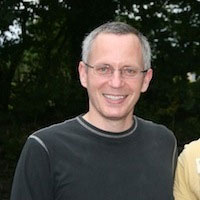
Barra O’Donnabhain, University College Cork, IrelandAcademic Board
Barra O’Donnabahain is a Senior Lecturer in the Department of Archaeology at the University College Cork, Ireland. His research is focused on bioarchaeology, physical anthropology, and palaeopathology. He is an expert on Viking Age Ireland and Celticism and has worked throughout the world. He is presently the director of the Timoleague and Spike Island Archaeological Projects.

Sarah Sherwood, University of the SouthAcademic Board
Sarah C. Sherwood is a Professor of Archaeology in the Department of Earth and Environmental Systems at The University of the South, a small liberal arts college on the Cumberland Plateau in Sewanee, Tennessee. Sherwood also serves as the University Archaeologist for the institution’s 13,000 acre land base. As an anthropological archaeologist and geoarchaeologist her research has focused on anthropogenic sediments from a range of site types including caves, rock shelters, earthen monuments and tells in the Southeastern US and E. Europe. Recently she joined the Easter Island Statue Project (EISP) focusing on the landscape and horticultural history at the moai quarry Rano Raraku.

Ling Qin, Peking UniversityAcademic Board
Ling Qin 秦岭 is Associate Professor of Neolithic Archaeology and Archaeobotany at the School of Archaeology and Museology, Peking University, Beijing. She completed her PhD on Neolithic social complex in the lower Yangtze River area at Peking University in 2003. She has worked extensively on Neolithic excavations and material cultures in China, jointly directing field-work in Zhejiang, Shandong, Shaanxi and Henan provinces. Since 2010, she has undertaken the field archaeology practice course of Peking University, and on behalf of PKU to organize the field project director training program entrusted by the State Administration of Cultural Heritage of China. She participated in the formulation of The Regulations of Field Archaeology in China, 2nd edition, 2009. Her current research projects and interests include the scientific research on Neolithic jades in Early China, early agriculture developments in East Asia, as well as the early civilizations study in a comparative perspective around East Asia.
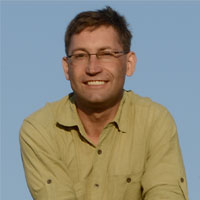
Sören Stark, New York UniversityAcademic Board
Sören Stark is Professor of Central Asian Art and Archaeology at the Institute for the Study of the Ancient World at New York University. He received his PhD in Central Asian Archaeology in 2005 from Martin-Luther-Universität Halle-Wittenberg (Germany). He has close to two decades of experience in conducting and directing archaeological fieldwork in Central Asia. Sören Stark’s current research interests are, among others, on Hellenistic and Late Antique/Early Medieval Sogdiana and the archaeology and history of nomadic groups close to oasis territories in Western Central Asia. His publications include a monograph on the archaeology of the 6th-8th century Türks in Inner and Central Asia, an exhibition catalog on Early Iron Age kurgans from Kazakhstan, and numerous articles and book chapters on the history and archaeology of Sogdiana between the Hellenistic and the Islamic periods. He has been co-editor of the Journal of Inner Asian Art and Archaeology (at Brepols) and is currently co-editor of Brill’s Handbook of Oriental Studies, Section 8: Uralic & Central Asian Studies (HO8).

Julie Stein, Burke Museum of Natural History and Culture, University of WashingtonAcademic Board & Board of Governors
Julie Stein is an Emeritus Professor at the Department of Anthropology and Emeritus Executive Director of the Burke Museum of Natural History and Culture at the University of Washington. Prof. Stein’s primary research interest is geoarchaeology, especially studies involving sediments found within archaeological sites and archaeological stratigraphy. Her work also emphasizes museum collections, coastal adaptations of peoples, specializing in the Northwest Coast.
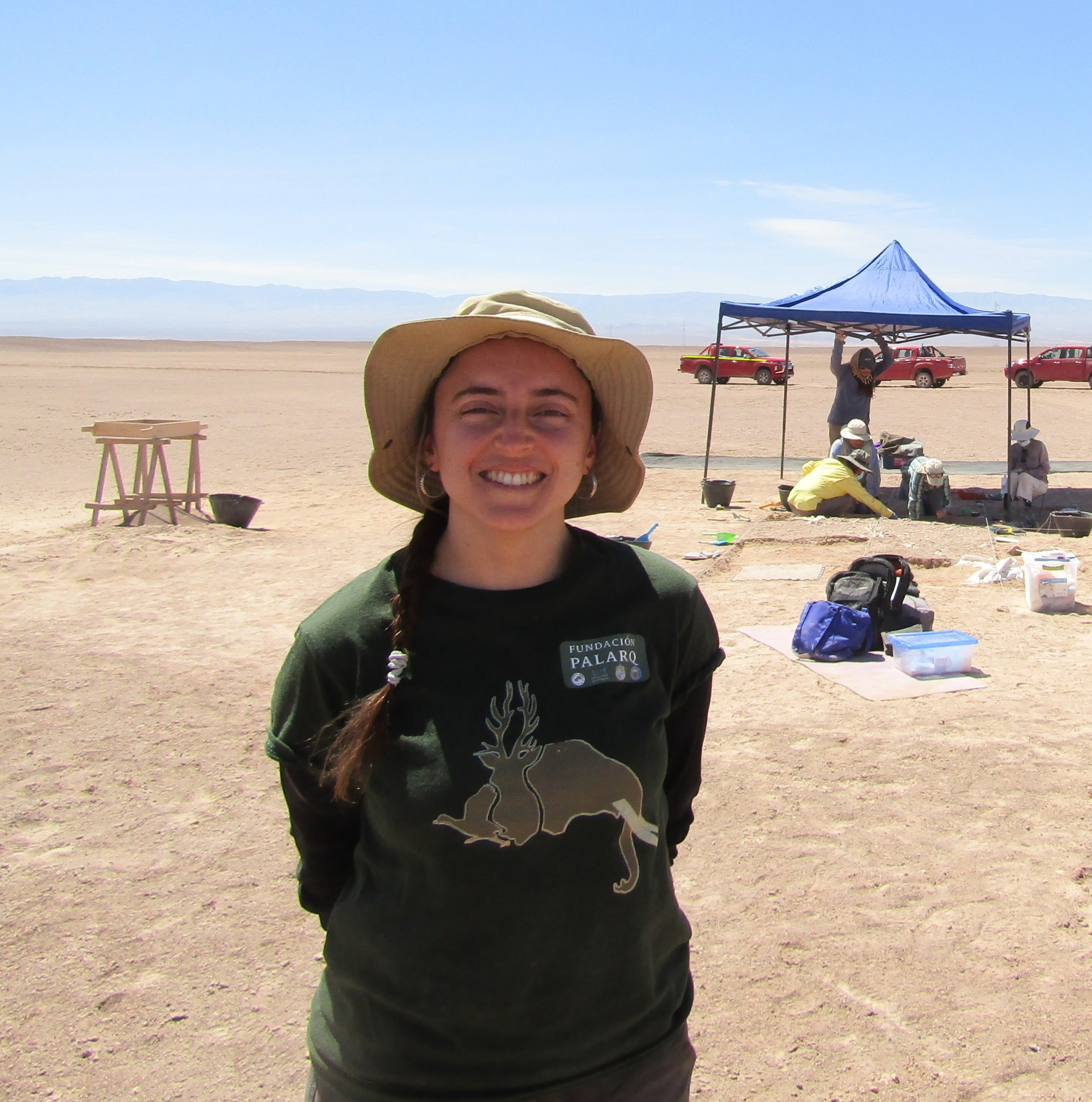
Natalia Villavicencio, Universidad de O'Higgins, ChileAcademic Board & Board of Governors
Natalia Villavicencio is a Chilean paleoecologist with a deep expertise in late Quaternary ecosystems. She is an assistant professor at Universidad de O’Higgins, Rancagua, Chile. She holds a Bachelor’s degree in Biological Sciences from Pontificia Universidad Católica de Chile and a PhD in Integrative Biology from the University of California, Berkeley. Her research journey began during her undergraduate studies, and she has since focused on unraveling the causes and consequences of the Late Quaternary extinction of large mammals in South America. By integrating ecological theory with the fossil record, her work contributes valuable insights into the dynamics of ancient ecosystems.

Willeke Wendrich, University of California Los AngelesAcademic Board & Board of Governors
Willeke Wedrich is the Joan Silsbee Chair of African Cultural Archaeology, a Professor of Egyptian Archaeology at the Department of Near Eastern Languages and Cultures and the former Director of the Cotsen Institute of Archaeology at UCLA. She is also the Director of the Center for Digital Humanities, Editorial Director of the Cotsen Institute Press and Editor-in-chief of the UCLA Encyclopedia of Egyptology. Professor Wendrich is the co-director of the Fayum Project, Digital Karnak, Keck Program in Digital Cultural Mapping and Ancient Egypt Architecture Online.

